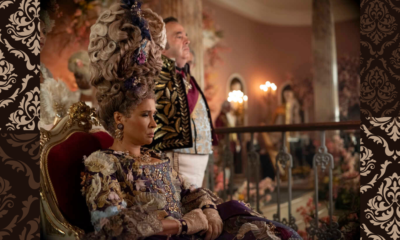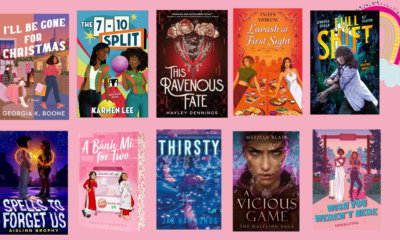Culture
BLACKFISHING DOESN’T HAVE TO BE INTENTIONAL IN ORDER TO OCCUR
Blackfishing is the new Blackface and white artists are cashing in.

Buckle up kids, we’re going to school.
What is Blackfishing?
According to Urban Dictionary, blackfishing is perpetuated by females of European (white) descent which involves artificial tanning and using makeup to manipulate facial features in order to appear to have some type of Black ancestry.
The point of blackfishing is to visibly appear Black or ethnic.
But I would like to expand upon this definition in the following ways: it is not limited to women and can be perpetuated by any gender (or lack thereof), the perpetrator does not have to be strictly white but can be any non-Black person, and the goal can also be to look racially ambiguous or like another ethnic race that is not their own. And the ultimate goal or the visual effect is not always to appear Black but can be to appear racially ambiguous or like another ethnic minority.
Blackfishing has some ties to cultural appropriation, the latter of which does not have to include darkening of the skin but might include the use of language/vernacular/slang, fashion, style, hair, etc. but blackfishing feels like the more extreme (and insidious) form of cultural appropriation.
Why is it Wrong?

Blackfishing, like cultural appropriation (especially of Black culture, including Black American culture specifically, by non-Black people), allows non-Black people to use Black culture as they see fit. Antiblack racism means that Black people are often ignored or even dismissed for appearing, behaving like, and embracing their own culture and natural looks. White and non-Black people using Black culture, using BAVE (Black American Vernacular English), singing Black genres and styles, dancing Black dances, and cooking Black recipes (successfully), are all seen as exceptional.
When a visibly Black woman (especially if she is dark-skinned and monoracial) talks with BAVE, especially if done consistently, she is looked down upon as uncouth and ghetto. If a white or non-Black woman does it, it’s seen as cool and trendy by the non-Black masses. However, a lot of Black people (though there are exceptions), see it as thievery and clownish. We are right.
When it comes to the entertainment industry, Black people, especially Black women, are encouraged to straighten their natural hair, downplay their Blackness and culture, talk with less BAVE, and even as extreme as to tell them to bleach their skin if they are darker in some cases. They are often told they will see no success unless they do these things in order to appeal to white and non-Black audiences, especially if they are in predominantly white/non-Black groups, spaces, companies, management, etc.
Meanwhile, white and non-Black people can certainly employ the use of blackfishing and cultural appropriation but can stop whenever it ceases being convenient for them. A blackfish can take off their makeup, fake tans (or let natural tans wear off if such applies), change their hair or remove certain styles or pieces, and change their wardrobe.
Black culture should not be something for non-black people to put on or take off like a coat. It should not be used for their success and adoration, while the people who created it get paid dust for utilizing it themselves. White and many non-Black audiences would rather get the Black culture they crave in the form of non-Black faces.
Have we forgotten that saying? Love Black culture, hate Black people?
Some Noteworthy Examples
In the following sections, we will discuss Ariana Grande, and Amethyst Kelly (I will not be using her stage name, I don’t say it, Google her real name I provided or look at the pictures if you need to know who she is), and finally Jesy Nelson.
Ariana Grande

Ariana Grande (which I’m told is actually pronounced GRAN-DEE, instead of the more Spanish-sounding GRON-DAY as one would normally expect from the spelling of that name), just irks me. She is so incredibly talented and could, and should, be easily rooted for by me and other Black people engage in critical race theory. But Grande’s incessant blackfishing makes that a non-starter, for me at least.
Ariana is a very prime example of a blackfish who does not try to appear Black necessarily, and while she has been open and honest about being Italian, I’m sure she and her team know how many of her fans think she is a racially ambiguous Latina, especially since the vast majority of the public pronounces her name the way they do.
What is important to note about blackfishers and why you should not dismiss claims of blackfishing simply because “they never claimed to be anything other than white” or non-Black, is because of the many subtle or overt things they do that add up to looking or seeming ethnic. For Ariana we have her collagen that makes her lips bigger, other plastic surgery she did, her use of makeup and/or tanning to make her skin darker, and also her speaking voice.
Ariana definitely spoke differently earlier in her career compared to lately. You can hear her higher-pitched voice which was characteristic of Cat Valentine from Victorious and Sam & Cat. Mind you, she still sounded similar (just less loopy and airheaded, as were key for the character) when she spoke in interviews. Since becoming a pop star specializing in more R&B influences, she tends to speak with more BAVE and BAVE influences, last I checked. (If that has changed at all, please let me know in the comments below.)
Amethyst Kelly

Amethyst Kelly is one of the best examples of why blackfishing and cultural appropriation are so toxic. Forbes magazine was all too happy to post an article stating “Hip Hop Is Ran By A White, Blonde, Australian Woman”. Backed and endlessly defended by T.I. (whose own colorism has garnered him some serious side-eye by many even before more recent events and allegations of a different nature altogether), Amethyst Kelly was ushered into Black Hip Hop culture on a white carpet.
Azealia Banks famously broke down why the praising of white and non-Black people in Black spaces and genres is so wrong in her Hot 97 interview. Obviously, these days Azealia is infamous for her hot takes, controversial opinions, trolling, and endless feuds, but I still stand by the fact that during that entire interview she told absolutely no lies. I still watch it from time to time (while also praying Azealia is taking better care of herself and will grow more as a person).
Some of you might think it bold of me to side with Azealia Banks of all people, especially since Amethyst never did or said a lot of things Banks did. But as I mentioned before, Amethyst was allowed in and given every chance, but Azealia, who is far more talented (don’t @ me) was not and was disparaged against as a dark-skinned Black woman. Did Banks and does Banks often respond to her pain and injustices against her in the worst possible ways? Yes, but that doesn’t mean the hurt wasn’t there or that her obvious issues came out of nowhere.
But back to Amethyst Kelly. Thanks in part to Azealia Banks’ rousing interview, but eventually Amethyst sort of fell off, to many Black people’s relief. Her departure signaled to white and non-Black (and any misguided Black) executives that white people would no longer be widely accepted and praised by the Black community for cultural appropriation. While Amethyst Kelly was gone, there was an uptick of non-white but still non-Black artists doing virtually the same exact thing she did. The only difference was they were ethnic, so non-Black, and unfortunately even a lot of Black, fans rooted for them, hard. So where would that leave Amethyst Kelly in her eventual return as well as artists coming after her? Blackfishing.
Even before her more blatant visual blackfishing shown above in the far right image, Amethyst Kelly also used collagen to make her lips bigger and other plastic surgery (including body surgery) in order to give a black-ER aesthetic while still retaining her original skin color and blonde hair color. More glaringly back then was her “vocal blackface” where she used a very overt and heavy BAVE affectation in her rapping in order to appeal to fans. She is Australian and in her interviews you know full well she has a very strong Australian dialect. Her rap voice is not only blatantly BAVE, but is specifically a very southern version of it, and seeing as she was signed by T.I., this cannot be a coincidence. Amethyst Kelly being praised and lauded for her “music” in a voice and style that isn’t even remotely close to her authentic self is simply deplorable for her, T.I., her team, and any and all apologizers and excusers.
Jesy Nelson

Now we finally come to Jesy Nelson, my main reason for writing this article in the first place. Her responses to the backlash she has received for blackfishing also inspired the title of this article.
Let me start by stating that I Just got into Little Mix’s music and became aware of the girls, some of their history, and have heard their music. I also saw Leigh-Anne Pinnock’s documentary Leigh-Anne: Race, Pop and Power. As this group and these artists are far more popular in their native country the U.K., I’ll give a brief rundown on who they are and what the situation is.

Little Mix is a pop group from the U.K. that was formed in the eighth season of the British X Factor series. Each singer auditioned as solo artists but was formed into a group by Kelly Rowland, and the group eventually won that season. The group has garnered a strong fanbase and is very successful, especially in the U.K. Eventually Jesy Nelson left the group, citing low self-esteem and poor mental health being primary reasons, as she was often compared to the other girls. She explained that she was often fat-shamed and eventually started starving herself on occasion as a result. Allegedly, when she announced she was leaving, her group mates were supportive, assuming she would take time to work on her mental health.
What followed was actually that Jesy decided to embark on a solo career, starting with a single titled “Boyz” inspired by Diddy’s famous “Bad Boy for Life” and featuring Nicki Minaj, who also previously collaborated with Nelson and the rest of Little Mix for their song “Woman Like Me”. Many fans noted how dark Jesy’s skin looked, her lips, and her curly hair and called her out for blackfishing in a video heavily using Black culture. Others agreed that Jesy was also fetishizing a very stereotypical portrayal of Black men in her song (“I like them tattoos, them gold teeth”).
Jesy’s Response to the Blackfishing Allegations

Jesy was apparently surprised that people assumed she was blackfishing. She explained in an interview with Vulture magazine that she was “just 100 percent being myself” and that she loved Black culture and Black music. In another interview with The Guardian, she stated “The whole time I was with Little Mix I never got any of that. And then I came out (of the band) and people were all saying it.” She elaborated “I wasn’t on social media around the time, so I let my team (deal with it) because that was when I’d just left. But I mean, like, I love Black culture. I love Black music. That’s all I know; it’s what I grew up on. I’m very aware that I’m a white British woman; I’ve never said that I wasn’t.”
Let me break down what’s wrong with these statements and why they don’t prove Jesy isn’t blackfishing. “100 percent being herself” is subjective. Only people who know her personally can corroborate that her behavior, music choices, and other non-visible traits are really authentically her. However, blackfishing is not about that, at least not completely. It’s more so about the physical act of changing one’s appearance in order to look or seem racially ambiguous or Black. And as we saw in her picture from her past, she did not use to look the way she does now. I feel that what Jesy was actually attempting to do was explain why she is not a cultural appropriator, but rather a cultural appreciator. Again, not the exact same thing as blackfishing in terms of her appearance.
In Empressive’s excellent video discussing Jesy, the allegations, Nicki Minaj’s defense of Jesy, etc., she brought up a very good example of a white artist who, while clearly influenced by Black culture, had never blackfished or culturally appropriated. The R&B singer JoJo has never once darkened her skin, worn Black woman-centric hairstyles, or done anything else to make herself appear more ethnic, or closer to Black. Please check out Empressive’s video on the whole situation, she explained it all very eloquently and precisely.
Vulture reported that Jesy did also later email the publication, stating: “I take all those comments made seriously. I would never intentionally do anything to make myself look racially ambiguous, so that’s why I was initially shocked that the term was directed at me.” Intentional or not, two plus two equals four. Whether she meant to or not does not change that that is what has happened.
Nicki Minaj Weighs in and Slams Leigh-Anne Pinnock

Before I start, let me be very clear: I am a fan of Nicki Minaj. I love her music, I love her face, I love her personality (most of the time), and I think some of the hate she gets is pure and simple misogynoir and people want to see her fail. I also don’t love a lot of the company she keeps. But I won’t elaborate on that part when it comes to her personal life except to say that, for me, and only me, the crimes of people around her and theirs and not hers. And people need to keep the same energy for faves that have done actual crimes themselves, including ones they themselves admitted to… but we won’t talk about that here.
I am only addressing what Nicki said in her Instagram live on which she had recently (at the time of this posting) had Jesy Nelson on as a guest, in which Nicki attempted to debunk Jesy’s blackfishing allegations. I still love Nicki, and always will, but I disagree with her points in defending Jesy and attacking Leigh-Anne.
Nicki took to Instagram live around October 11th, 2021 (or maybe 10th, I saw a live stream of it on YouTube) to have a kiki with Jesy Nelson and give the girl her flowers on their collaboration. Towards the end, Nicki brought up the allegations. She said a lot, so I recommend seeing the clip for yourselves on YouTube, a lot of channels have it up. I will just discuss the things that stuck out to me.
Nicki starts by saying that “as soon as people can’t get a bag with you, they want to stop your bag”. This was clearly in reference to Leigh-Anne and/or Little Mix as a whole. This implies that any issues Leigh-Anne allegedly had with Jesy’s blackfishing are motivated by jealousy that Jesy is now solo and doing great without the group.
She used a false equivalence when trying to downplay blackfishing, saying “I’ve worn blonde wigs down to my feet” and saying that if white women can’t do certain things, Black women shouldn’t be allowed to rock Eurocentric styles and colors. But a Black woman wearing straight hair, wigs, or weaves of any color, is not the same thing as a white woman, who already is the face of Eurocentric beauty standards, dabbling in Black styles for cool points. Because a white person will get praise from other white people (and even some nonwhites, even Black) for Black culture which on them is trendy, edgy, or cool. Meanwhile, Black people, especially women, are told to straighten their hair and downplay their culture for employment, interviews, education (remember those Black girls in schools sent home for wearing their natural hair?), etc. While unfortunately there are some Black people who want to be white or be seen as white, first of all, good luck with that in this reality, second of all it doesn’t change the fact that Black culture is only acceptable or palatable when it’s non-Black people utilizing it. A Black person who can sing well, yawn. A white person who can sing soulfully? Get them a record deal, yesterday.
Nicki also goes into how if someone was working with someone for almost ten years (as Jesy had been a part of Little Mix for almost ten years) and felt something was so bad, but didn’t say anything until that person left, that they were basically foolish. This puts the onus of responsibility on the person (obviously meant to be Leigh-Anne by context), instead of the person doing the harm (Jesy). Nicki should understand, as a Black woman herself in the industry, that black women don’t have the same kind of power and leeway to express themselves and their frustrations without being seen as “difficult” or a “bitch”. This is actually something Nicki herself has personally faced and talked about for a very long time and has felt strongly about. She’s also talked about how a non-Black person or girl can get away with behaviors that Black women cannot in the music industry.
Most of Nicki’s issue with Leigh-Anne had to do with messages Leigh-Anne allegedly sent to a Tik-Toker, citing Jesy’s blackfishing and criticizing it. Nicki felt that Pinnock doing this, again which is currently unverified if it was actually her at all, was “stopping Jesy’s bag” and made Pinnock look like “a jealous bozo” saying that if Leigh-Anne “wants to go solo, just say it.” Nicki felt that if Leigh-Anne had an issue, it should have been addressed long before Jesy left the group and embarked on a solo career.
What Should Leigh-Anne Have Done? Is It ALL On Her?
Does Nicki, does anyone, really think that Leigh-Anne could have said something and made some noise? especially before the current social climate calling out antiblackness, cultural appropriation, blackfishing, and the like, that Leigh-Anne would not have been at serious risk of being fired and probably replaced? During the live, Nicki also keeps saying “trying to stop people from feeding their families” to paint Jesy as a victim so that if she lost her career she couldn’t feed her family. Would the same thing not happen to Leigh-Anne if she had spoken out, Jesy cried white tears, or otherwise, Leigh-Anne got labeled as “difficult” and lost her job?
But that is pure speculation on my part. We don’t know if Leigh-Anne was really silent the whole time, or if Jesy’s blackfishing was brought up privately. In fact, Jesy admitted during the live with Nicki that Leigh-Anne nor Jade (another ethnic member of the group, though non-Black) hadn’t said anything to her for the most part until the last music video they filmed. Leigh-Anne had reached out privately to make Jesy aware of how she was coming across in her appearance.
But the most important thing to note about whether or not Leigh-Anne, Jade, or anyone else should have said anything to Jesy is irrelevant because it was never Leigh-Anne or anyone else’s responsibility to stop Jesy from blackfishing. Jesy never should have been doing it in the first place and it never should have had to be any explanations, responses, or backlash whatsoever. Black people, even light-skinned visibly Black biracial people, have the right to deal with uncomfortable ethnic and racial situations however they see fit as long as they’re not committing crimes. If Leigh-Anne didn’t say anything, whether it was out of fear of being fired or not, that was her business. It’s not her job to hold other grown adults accountable for their actions. it’s theirs.
Nicki also implied that Leigh-Anne and other light-skinned biracial people “suddenly becoming Black this and Black that” (which seems to imply Nicki being aware of Leigh-Anne’s documentary) is silly if you were silent for years. That is certainly Nicki’s and other people’s opinion. But I don’t think it’s that simple. I think that visibly Black biracial or mixed people still face antiblack racism and they should be allowed to talk about it, at least without centering themselves in every conversation with other Black people about the same topic. If they are aware of colorism and light-skinned privilege, don’t shy away from it, and don’t think of their experience as comparable to or worse than a monoracial and/or darker-skinned Black person’s experience, then they should be allowed to share their experience. Especially Leigh-Anne who is the sole Black member of Little Mix, biracial or not. Nicki was always more vocal, but Nicki also was not a part of a group where she would have less autonomy. She was also not the only visibly Black member of such a group.
Besides all the needless caping and Nicki slamming Leigh-Anne in general, what is very upsetting is realizing that, once again, Nicki previously worked with Little Mix. During that time, Nicki was going through a lot of ordeals with her hate train and her feud with, she-who-shall-not-be-named. Little Mix, including Leigh-Anne, defended Nicki and made it clear that it was Queen Nicki herself and not that other girl who they wanted for “Woman Like Me” specifically, even though that person claimed that they went to her first or at all and that Nicki “stole” the song out from under her.
In Conclusion
The final thing I’ll say is that Nicki doesn’t need this kind of bad publicity in her life right now. When I previously mentioned the company she keeps, I didn’t just mean personal. Professionally she has worked with and rubbed knees with a lot of culture vultures: Ariana Grande (more than once), that weird snitch who allegedly also himself had at least one person murdered (the one with the colorful hair), Drake (who, while visibly Black, switches cultures and styles like he, hopefully, switches drawers), Jessie J (alongside Ariana in the same damn song to boot, for her it might be more so vocal and potential “appreciation” depending on who you ask. Ask me and I say the same thing I say about Adele: they seem nice and all, but they’re being praised for sounding Black), Eminem himself, and others. These artists are extremely popular, so business-wise they were great moves by Nicki for her career, but honestly, when these are the people you’ve worked with, you should probably not cast stones in glass houses.
As for Jesy, other blackfishers, and their apologists. I sincerely hope that you all understand that blackfishing, much like blackface (shout out to Robert Downey Jr., his stans, MCU stans, and apologists!), is what it is. I don’t care who co-signed or approved it. I don’t care which elite Blacks were like fasho (they don’t get to speak for the rest of us. And celebs need us and our money and our voices and platforms to keep them paid and relevant). I don’t care if you didn’t set out to hurt or offend anyone, because guess what? They’re hurt and/or offended. Jesy claims her hair is naturally curly and she didn’t want to keep damaging it to straighten or loosen those curls. But doesn’t dyeing it also damage it..? Correct me if I’m wrong. As for her tanning, I’m aware it is extremely popular in Europe and also parts of the U.S. She also said that she’s so blessed that her skin tans so easily and so well. I’m not saying you can’t tan. I’m saying that darkening your skin, via natural or artificial tanning or makeup when paired with very curly hair and collagen-enhanced lips… and you look racially ambiguous. Period. So when you look that way and continue to appreciate Black culture… it makes those videos look more palatable. And that’s not good.
Be the first to leave a review.
Your browser does not support images upload. Please choose a modern one
I identify as a womanist. I also identify as both gay and queer. I am gender fluid and respond to he/him, she/her, and they/them. I am a Black American-Descendant of American Chattel Slavery who is pro Black Diaspora and pro creating Global Black Strongholds (Blacks across the Diaspora holding it down in each region to allow all Blacks to go to each, and be safe and in community together). I am a comics, tv, movie, and video game stan. My expertise for comics and related media are DC Comics, Marvel Comics, Archie Comics, and a little bit of others here and there, but I'm hoping to branch out to other, Blacker and indie comics and related content. I'm a binge watcher and can talk about shows and movies for days. You can find me on YouTube and various other social media platforms as thaboiinblue.

















